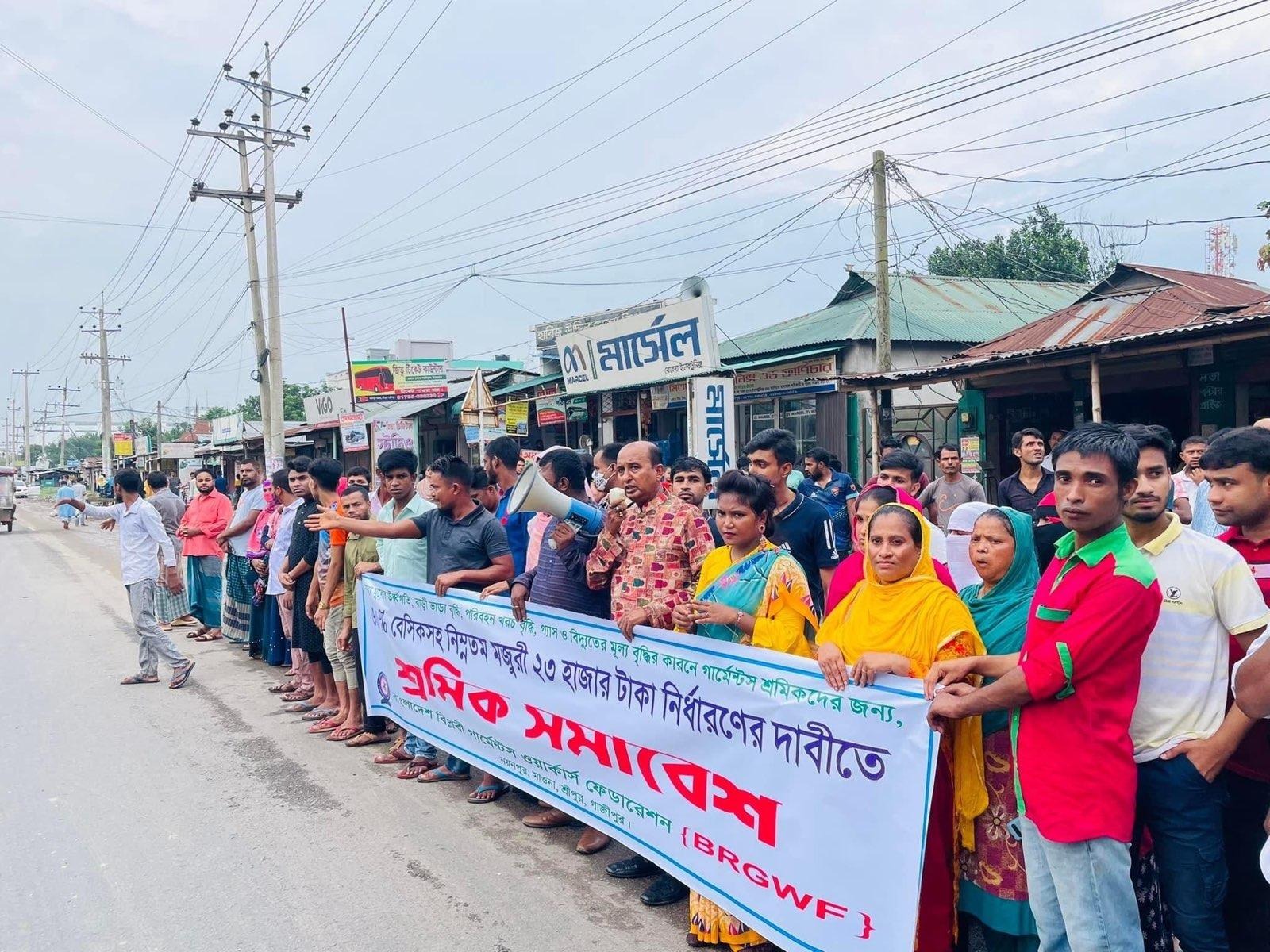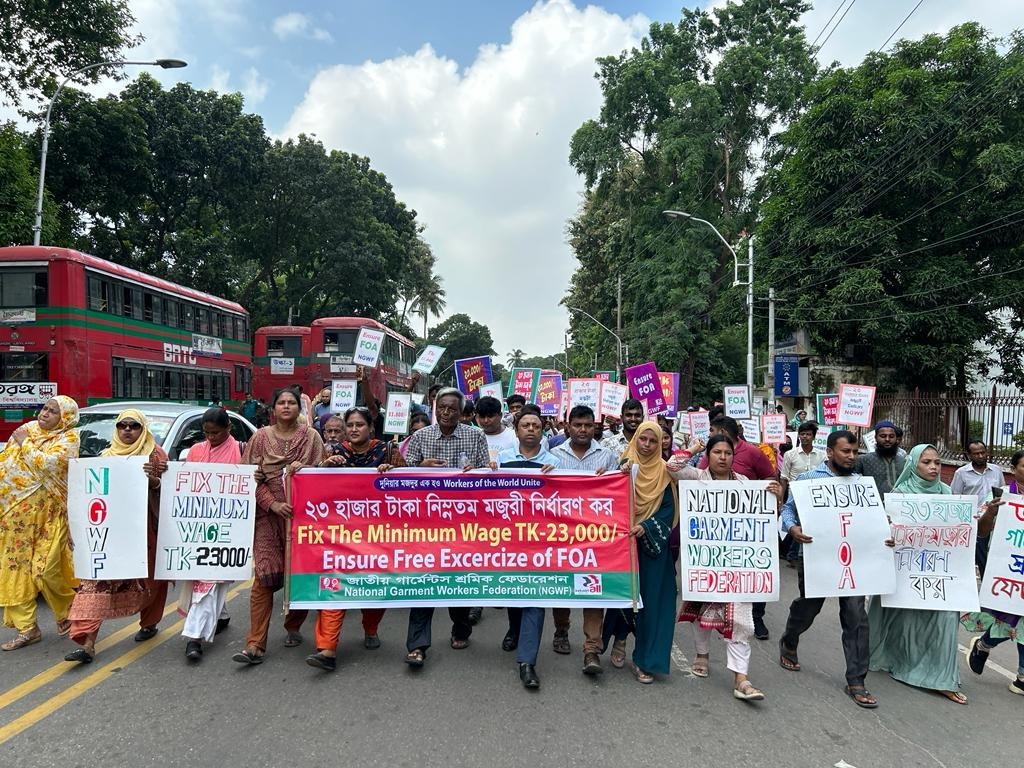Drop the charges
Over a year after the protests, 30,000 workers are still facing arbitrary charges that could lead to lengthy prison sentences, including life imprisonment. The largely baseless charges are used to intimidate the workers' movement in claiming their right to higher wages, with the complicity of brands that remain silent. Some workers were charged based on acts that took place far away from their workplaces, in which the workers could not have taken part. Filing charges against unnamed workers is a common intimidation technique aiming at creating a freeze response in the Bangladeshi labour movement. Workers cease protests and union activities out of fear of being arbitrarily linked to the charges.
Filing charges against unnamed workers is a common intimidation technique aiming at creating a freeze response in the Bangladeshi labour movement. Workers cease protests and union activities out of fear of being arbitrarily linked to the charges.
The failure of international brands to publicly condemn the undemocratic wage revision process and include wage demands supported by Bangladeshi trade unions resulted in a predictable cycle of failed wage revision outcomes, followed by the ever-escalating violence and repression directed at malnourished and desperate workers. The new minimum wage of 12,500 BDT ($106) per month is among the lowest in the world and far below the trade union demand of 23,000 BDT ($195), a wage that research studies confirm is the minimum required to place workers above the poverty line.
Despite public statements promising to support a fair and independent wage-setting process and to protect the workers’ right to unionise and protest, fashion brands have failed to do their due diligence and take any meaningful action to foster an environment where workers’ voices are included in the wage debate, or ensure that speaking up does not cost workers their freedom or lives.
The situation in Bangladesh shows that brands' endless promises about living wages and freedom of association are nothing but lip service and an attempt to deflect from the effective outsourcing of worker repression to the Bangladeshi security forces and employer-aligned institutions.


